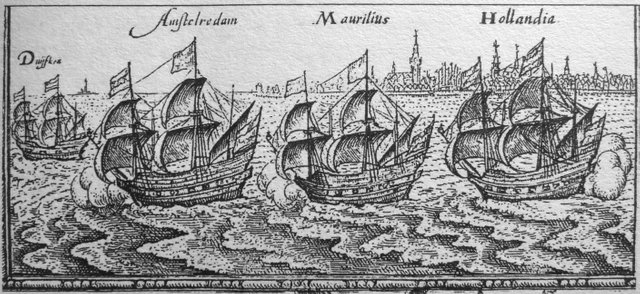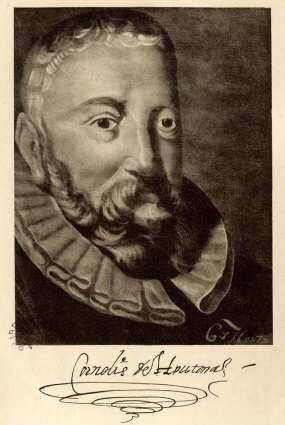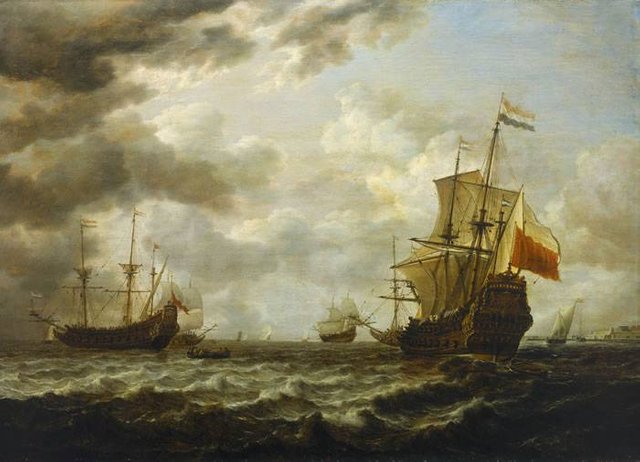The journey that put the Dutch in the world trade of spices
Let's make a dive, far in the past when the European nations were exploring the world, establishing colonies in lands far in the East and trading relations with the nations of Asia.
Back then, there was a time when the kingdom of the Portugal, established in 1139, had completed a series of accomplishments in exploring the world, advancing cartography and navigation technology which eventually lead to a well established monopoly-like status-quo in the world trade. The Kingdom of Portugal evolved to the Portuguese Colonial Empire, dominating the spice trade and becoming the only merchant of spice.
The Company of Far Away
It was 1594, a year of this period, when two Dutch merchants decided to challenge the Portuguese trading establishment aiming in setting grounds for Dutch relations with the East and expand the Dutch trade to Asia. They founded the "Compagnie van Verre", meaning the "Company of Far Away". They accumulated funds and on April 2 they left with a fleet of four ships from the port of Amsterdam; namely Amsterdam, Hollandia, Mauritius and Duyfken having the Banten of Java island as their destination. The chief operator and captain of the fleet was Cornelis de Houtman.

The fleet of Cornelis de Houtman | src: wikimedia
The journey
This ambitious movement, as we shall see, did not enjoyed a smooth luck. De Houtman was lacking of both leadership skills and experience of long travels in the sea. They managed to reach the equator without many issues only to face a nightmare; the Dutch crew could not bare the tropic climate and the sailors soon started to suffer from high fever. Their food supplies started to wear out and on top of these, scoorvy fell like an epidemic among the crew. Many died and only a few were not suffering.
After a rather long deviation from the planned route, the ships managed to sail below Africa and anchor at Madagascar to pause for rest and gather resources. The dead had already grow in numbers and the tired sailors left the shore heading in the land to gather fruits when natives attacked their encamplement and stole much of what was already possessed. Given a preceded civil dispute among the crew, things turned rather unfortunate for the crew that started to loose moral.
They set sail again and managed to reach their destination and anchor in Java. While in great misery and dispair and despite the ill conditions, De Houtman organized a team of representatives and lead them to the Sultan of Banten to negotiate and establish the trade relations he was longing for.
Yet, this good turn of events was meant to be only temporrary. For the Portugese soon shown up, damaging the negotiations and leading the Sultan to order De Houtman's imprisonment. He managed to get away from the dead-end; he got himself released and following a short fight, he retreats to the sea with his fleet and set sails to Madura. Once there, De Houtman ordered brutalities agains the civilians as a revenge for the pirate attacks they encounter along the way.
Finaly the fleet sailed to Bali in Indonesia, where they managed to acquire peppercorn. Meanwhile, De Houtman hardships did not end; being accused of poising a crew member he got himself imprisoned, only this time by his very own crew.
In the advent of the overall damage, the crew decides to start the journey back and they manage to reach Amsterdam 3 years after they initially set sail; in 1957. Upon arrival out of the 249 men initially on board, only 87 returned.
Conclusion
Despite the overall disaster of the expedition, the imporance of the movement remains high. It was a serious attempt against the portugeuse estalishment and an evidence of the feasibility of the motive. As a result, additional endeavours followed. Such attempts were marked with success and eventually led to position the Dutch within the world spice trading establishment.

Cornelis De Houtman | src: wikimedia
Sources
[1] Cornelis de Houtman
[2] Portuguese Empire
[3] Kingdom of Portugal
[4] Amsterdam, a history of the world's most liberal city, Russel Shorto
[5] Dutch East India Company
